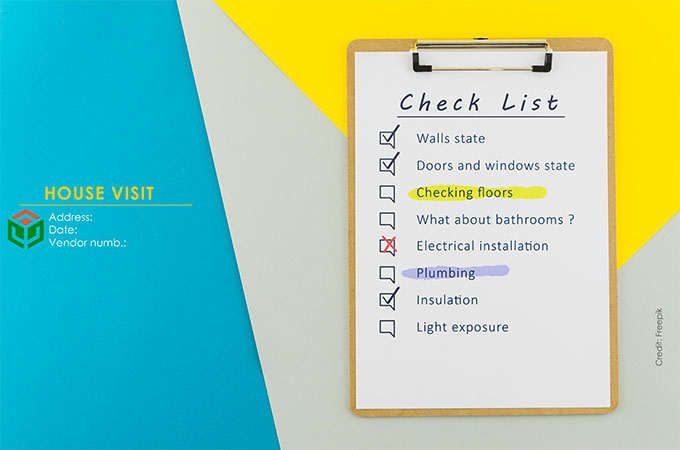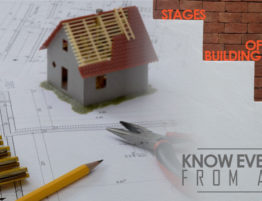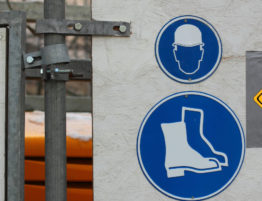
At one point or another in our lives, most of us go through the house-visiting stage. This is a key phase in the process of buying or renting property. If it allows the buyer or tenant to soak up the premises, this is especially the opportunity not to be missed to check the condition of the property and find out if it really meets your criteria. Unfortunately, many people ignore the importance of this act and trivialize it too often. Since a real estate visit generally lasts a short time, it is necessary to prepare it efficiently so as not to “crash”. How to make a success of a house visit? What are the points to check? And what are the questions to ask your interlocutor? If you are not able to be accompanied by a professional, here are some practical tips to get by.
Prelude to the house visit
If you have the program to visit a property, it is because you have taken care to check beforehand that it meets your needs. It would not be productive to make a visit without first knowing the seller asking price. Also, as far as the real estate announcement allows, the dimensions and number of rooms in the property, the presence of a garage, a terrace, a courtyard, a garden or any other desired device are information to collect before planning a visit. In short, first make sure that the property to be visited conforms on paper to your priority criteria. There would be no point in blindly carrying out visits hoping that providence would lead you to the rare pearl.
Once you have made these arrangements, you can consider carrying out the house visit with peace of mind by using the following tips.
Tips for a successful real estate visit
1. Prepare for the house visit
Improvisation will make you a big loser in a buying or renting real estate process. The seller’s objective is obviously to sell, so he will do everything to be convincing. It’s up to you to organize yourself to play the leading role throughout the process. So prepare visit sheet, checklist, questionnaire, pen, camera, tape measure and flashlight before going to the scene. In addition, find out about the real estate prices that are practiced in the sector of the targeted property. This allows you to better judge the value of the property and to better prepare the negotiation phase.
2. Opt for a first house visit during the day and during peak hours
It is preferable that the first visit takes place during the day. This will allow you to better assess the exposure to light in the house. And you will not miss some details during the inspection. At the same time, the road traffic in a rush hour will allow to assess the traffic condition. And you will take the opportunity to measure the noise related to traffic. Warning! These points appear as details but can very quickly become prohibitive. And the smallest detail omitted can cost you dearly in repair after purchasing the property.
3. Get ahead of the appointment time
In doing so, you will take the time to ensure that the property is served by shops, schools, hospitals and other essential services. Also do a little neighborhood survey and the area tour to examine the environment in which the house is located. The atmosphere that prevails in the neighborhood will certainly influence your well-being. And the presence of noise pollution and sources of atmospheric pollution, as well as the feeling of insecurity of the neighbors will be brakes to your well-being. So collect this information yourself, which you will later compare with that given to you by the seller during the visit. Also, if the property concerned is an apartment, use this time to inspect the common areas of the building.
4. Your first impression… Of course ! But stay objective
It is very easy to miss the point by giving in to your emotions during a house visit. Certainly, your first impression, whatever it is, matters a lot. You can only feel good in tenement that suits you. And a dwelling that does not make you charming risks being inhospitable to you. However, a beautiful construction can hide a “simple” moisture problem that can affect its strength. Conversely, a few strokes of paint can restore finesse to a decayed building. So open your eyes, stay calm, continue your investigation to the end. Don’t decide on a whim.
5. Be friendly
Remember you are negotiating a deal! You should certainly be demanding, but you will gain a lot by being polite and courteous. Even if the person you’re talking to is an assistant, show interest in them and respect their role. The bond that you will have created will work in your favor when it comes to negotiating. And then, don’t forget that there may be competition on the same file. Your good character could tip the scales in your favor.
6. Use an inspection checklist
Here are a few checkpoints to do for a successful house or apartment visit:
- Interior and exterior walls, ceiling: touch the walls, look for the absence of cracks, damp spots or traces of mold, especially in the corners.
- Windows, shutters and doors: check their condition, see if they are solid, if they open and close correctly.
- Floors: check that they are flat and smooth and that the coating are in good condition and suitable for each room. If necessary, lift the carpets to see if they are hiding defects in the tile or floor.
- Bathrooms and kitchens: check for windows or ventilation systems, test taps and flushes. In bathrooms in particular, track down moisture-related damage. Also take a look under the sinks and basins.
- Electrical installation: are the components (board, box, fuse box, wires and others) in good condition? Is there an earth connection? Differential circuit breakers? Check the condition and presence in the right places of electrical outlets and switches at all levels of each room.
- Plumbing: check the condition of pipes and installations, as well as the distribution and flow of water. Track down any water leaks.
- Stairs: ensure their safety and quality if they exist.
- Insulation: check whether noise from neighbors or outside noise reaches the room when everything is closed. Also assess the temperature inside the building compared to the outside one.
- Opposite: check the view you have when opening the windows and see if the privacy of an occupant of the house is preserved from one room to another compared to a person outside.
7. Ask relevant questions during the house visit
The negotiator, whether it is a real estate agent or the owner of the premises, must answer your questions. So prepare useful questions like:
- When was the construction done?
- When was the last work? What did they consist of?
- Has the owner planned any work before making the property available?
- Are there any crack, mold or moisture issues?
- Have there been any cases of burglary in the house? And in the neighborhood?
- Why is the property for sale?
- Is the owner on good terms with the neighbors?
- What is the prevailing atmosphere in the neighborhood?
- Are there near essential services such as shops, schools, hospitals, pharmacy, transport, etc.?
- How does the building behave when it rains?
- Are the windows and roof watertight?
- When will the housing be available?
- What is the exact square footage of the building? And that of the field?
- What is the amount of municipal taxes?
- Are there any future urban development projects for the neighborhood?
- Has the building permit been granted?
- If it is a rental, can the tenant undertake work?
- How many tenants are there in the house?
What to do after the first house visit
While it is possible to decide to buy or rent a property right after a first visit, some steps are recommended first.
- Organize a second house visit with a building professional: nothing will replace the expertise and experience of a professional. If the construction is old, it will be able to detect hidden defects and therefore the work to be carried out in order to quantify them. You can then take this into account when negotiating the price of the property.
- Organize follow up visits: they will take place at different times to check if certain parameters do not change over time. For example, the seemingly quiet area during the day can become a din in the early evening. Or the street lighting at night may not be optimal in the area. If it is possible to come in rainy weather, do not hesitate to check for yourself how the construction reacts to bad weather.
- Analyze the property as if it were to be sold: if you are far from having this idea right away, it is still an objective way of seeing things. This will allow you to be more demanding in your search criteria. And who knows, maybe in the future you will earn a lot if you manage to resell the property.
- Visit many properties: because you fell in love with the first house you visited, do you think that continuing is a waste of time? It is preferable to have elements of comparison in this context. By visiting at least two or three properties, you can refine your criteria, change them or even make concessions in order to find what best suits your project. On the other hand, do not overdo it at the risk of not knowing where to turn.
In conclusion
Precautions for making a good real estate purchase go through a successful house visit. This cannot be improvised but is organized methodically because the stakes are enormous. You cannot afford to miss this crucial step in your life plan. Then play your score using the advice given in this article. And if you need a real estate agency or building professionals to support you, contact us.










